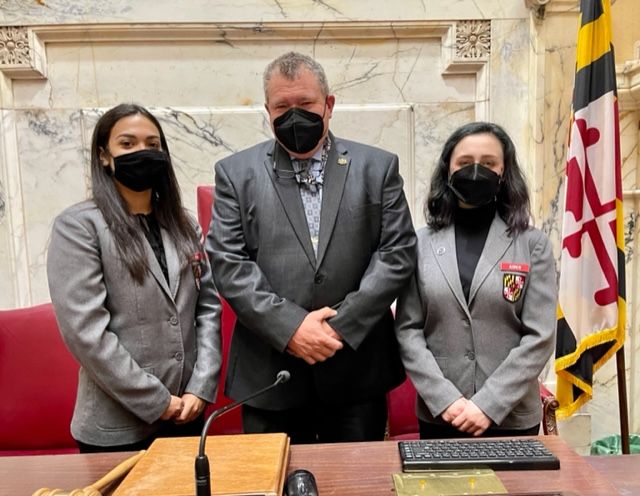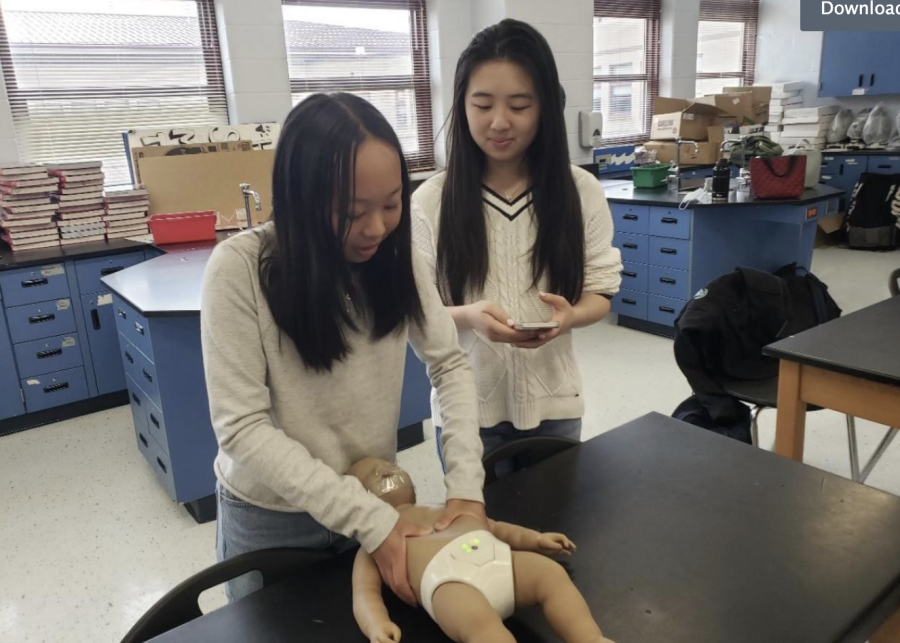It’s a reflex at this point. I’m walking to third period, and I whip out my phone to check notifications, start playing music, and text my mom. All I really need to tell her is a final halfhearted attempt to get her to pick me up early, but I still like having the option of giving her innocuous updates throughout my morning. My music is necessary to get excited about AP Lit, a class I have way too early in the day to have much enthusiasm. But this year, instead of using my phone in the hallway being a non-issue, it now earns me a sharp comment from a teacher I’ve never had telling me to “put it away.”
Restrictions on personal technology are not new. A 1989 Maryland law banned pagers and the like in schools following increases in drug sales. As of 2024, seven states have implemented complete bans on phones in schools. For example, Louisiana students now have to power off their phones and put them into their lockers for the entire school day. Florida similarly does not allow the use of phones at all, even at lunch.
The new CCPS policy is not that strict. While students can’t use our phones in class under any circumstance, they are allowed at lunch, at least in high school. Personal computers are prohibited, because the county has provided laptops. Students in elementary and middle school face even harsher restrictions, including not being able to use cell phones throughout the entire school day.
When asked about the impact that the ban has had on their experience at school, a sophomore complains. “It sucks… I can’t cheat,” they say, with a huge sigh. They also admit that their daily average screen time this week is eight hours, putting them at the very top end of the average for teenagers.
A senior mentions that the rules haven’t impacted her that much, simply because she “never would have thought to use [her] phone in [most classes], really.” Besides, many classrooms have phone caddies now. However, it has changed her photography class because she can only use the school-provided cameras, which can be annoying sometimes.
Something I’ve found interesting is that the hallways are more exuberant and livelier between classes, as people walk with their friends and classmates. There are less headphones and less collisions. Teachers have also noticed this in class, with one remarking that “…students are more talkative, in a good way!” I’ve felt myself become chattier this year, either from having no other avenues to entertain myself or because I have more to say, without being able to text my friends throughout the day.
As for the reasoning behind a cell phone ban, there are a million reasons teachers and parents have to be concerned about the use of cell phones. Rising screen times and lowering attention spans makes teaching difficult as students are constantly distracted. Teenagers spend anywhere from four to eight hours a day on their cell phones, not including computers and televisions. Cell phone regulation in schools are rising, on state, county, and even school level. This year ushered in many new policies, much to the chagrin of teenagers everywhere in the United States, where about 37% of teens are addicted to their phones. However, there are definite benefits. In a 2024 study, teachers in the UK report more focused and calmer classrooms. There have also been decreases in cyberbullying because there has been less time and less opportunities to use personal technology on which social media sites can be accessed, the main medium for cyberbullying.
Nevertheless, the advantages are understated when students do not respect the policies. About 29% of students in the study self-reported, saying that they use their phone regardless of the rules. It is also worth mentioning the nearly half students in France who consider themselves anxious when removed from their device, which is a problem in it of itself, but will also make it difficult to focus in class. While Calvert County is not in France, teenagers are the same all over the world.
The CCPS phone policy is a sharp deviation from the more lax attitude of the past. All I can say is that I’m glad I’m a senior: I can text my mom all I want in college.













